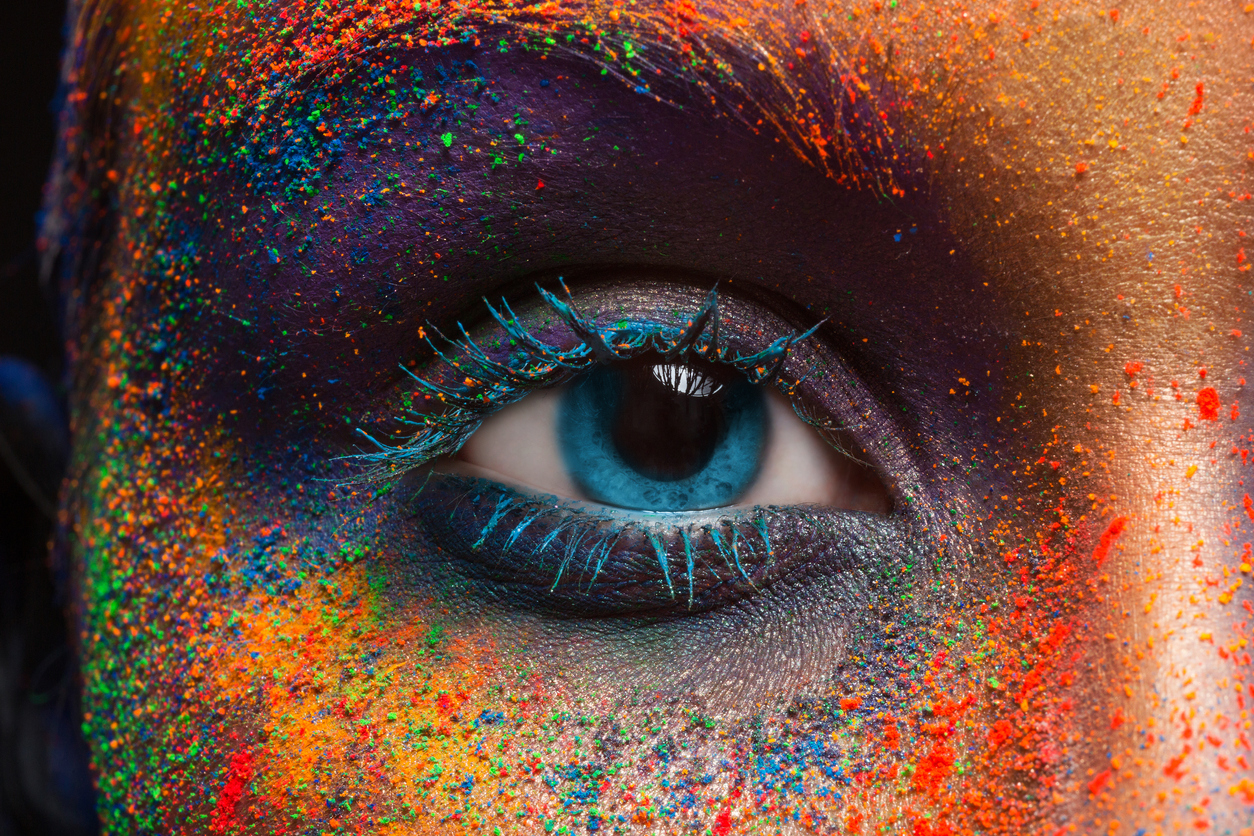
Engineered Bacteria Produce All Colors of the Rainbow
July 14, 2021| |
Korea Advanced Institute of Science and Technology (KAIST) researchers successfully engineered Escherichia coli to produce all seven colors of the rainbow. Their findings are published in Advanced Science.
Most colorants used in food, cosmetic, chemical, and pharmaceutical industries are made of petroleum, which can pose side effects to humans and risks to the environment. This led KAIST researchers to explore using microbes to develop safer, natural colorants. They focused on engineering the metabolism of E. coli to efficiently produce seven natural pigments. The pigments accumulate inside the cells of the bacterium, which has limited storage capacity. Thus, the team engineered the cell share and came up with tiny sacs within to boost the cell's capacity for pigments. Tiny sacs on the outside part of the cell were also developed to secrete pigments.
The results of the study can help food, pharmaceutical, and cosmetic industries efficiently produce natural colorants that can replace petroleum-based synthetic colorants.Read the articles in Advanced Science and Asian Scientist.
| |
You might also like:
- E. coli Bacteria Offer a Path to Improving Photosynthesis
- Vietnamese Researchers Analyze Function of Arabidopsis ERF8 Expressed in E. coli
- Researchers Identify Genetic Makeup of Dangerous E. coli Strains
Biotech Updates is a weekly newsletter of ISAAA, a not-for-profit organization. It is distributed for free to over 22,000 subscribers worldwide to inform them about the key developments in biosciences, especially in biotechnology. Your support will help us in our mission to feed the world with knowledge. You can help by donating as little as $10.
-
See more articles:
-
News from Around the World
- WHO Releases Framework for Governance of Human Genome Editing
- Regulatory and Governance Considerations for Gene Drive Research
- Government Decisions Influence Consumer Perceptions towards GM Foods, Study
- Gene Drives Offer Sustainable Management of Vector-Borne Diseases -Experts
- New South Wales Lifts 18-year-old Ban on GM Crops
- Engineered Bacteria Produce All Colors of the Rainbow
- Genetic Analysis Could Help Predict Sunflower Properties
- EFSA Releases Assessment of GM Cotton GHB614 for Renewal Authorization
- Potential of Protein-Rich Faba Beans Unlocked; Anti-Nutrient Gene Discovered
-
Plant
- Efficient Engineering Platform in Methylotrophic Yeast Developed
- CABBI Reports First Successful Precision Breeding of Sugarcane Using CRISPR-Cas9 Genome Editing
- Study Reveals Citizens' Reactions to Genome Editing in Five Countries
-
Read the latest: - Biotech Updates (December 17, 2025)
- Gene Editing Supplement (December 17, 2025)
- Gene Drive Supplement (February 22, 2023)
-
Subscribe to BU: - Share
- Tweet

